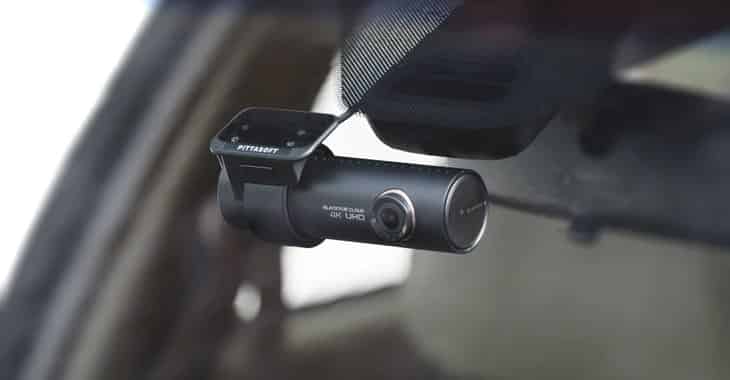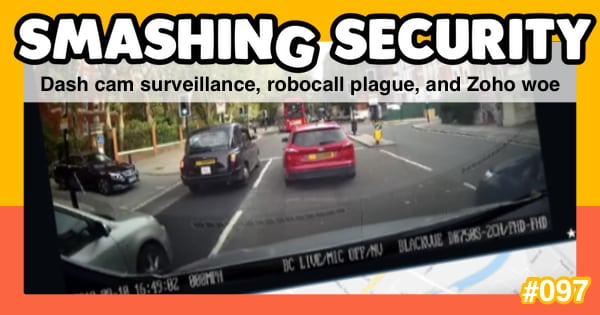
Andy Rubin is the guy behind the Android operating system. He co-founded Android Inc, the firm that Google bought in 2005 because it realised it needed a mobile operating system.
The rest is history – Google gave away its operating system, meaning that more than one billion smartphones and tablets snatched it up, and in exchange users around the world shared their data with the search engine giant. Google was very happy.
Rubin left Google in 2014, to set up his own company – Playground. Playground’s purpose is to incubate hardware startups building intelligent machines, and then provide engineering expertise to build the systems necessary to make them work.
So, what kind of “smart” devices is Andy Rubin thinking of? Well, Wired pressed him in an interview to provide some clues:
…he says he is in fact working on a dashcam, which he plans to give away in exchange for its data – potentially allowing Playground to build a real-time visual map of the world.
Hear that noise? It’s the sound of screeching brakes.
As The Verge describes, data collected by dashcams could be immensely valuable:
Dashcams are incredibly popular in Russia — mostly because they’re used to provide evidence of traffic collisions — but they’re not widely used elsewhere. Rubin wants to change that with a dashcam that would be free in exchange for its data. While there’s no set release date, the dream is to potentially build a real-time visual map of the world.
Dashcams could enable real-time traffic status, or even a real-time Street View-like service. Google has done an incredible job of mapping the world through Google Maps, but it’s merely a regularly updated snapshot in time at the moment. A real-time view of the world has many benefits, but Rubin doesn’t address any of the potential privacy issues or legal obstacles in the Wired interview.
Potential privacy issues? Damn right there are privacy issues. How could there not be serious concerns if dash cams that shared everything they see, their location, and the data they collate, with big business?
Just because something can be done, and might have some arguable benefits, doesn’t mean it should be done.
 It’s bad enough that Google Street View cars came down our roads and took photographs of our houses without permission (you can have your house’s picture removed, but it’s a pain in the neck) and snooped on our Wi-Fi.
It’s bad enough that Google Street View cars came down our roads and took photographs of our houses without permission (you can have your house’s picture removed, but it’s a pain in the neck) and snooped on our Wi-Fi.
But now there is the prospect, in the relatively near future, that dashboard-mounted cameras that share their footage and data with Andy Rubin’s company will become common.
Of course, you can choose not to have a data-sucking dash cam in your car. But I can’t stop other drivers on the road from having their dash cams pointing at me, collecting data about my car’s location, and streaming megabytes of information up to data centers.
Data centers where I have no control, and it’s unclear how it might be used by multinational organisations, advertisers and law enforcement for their own ends.
Once again our privacy is on the road to hell, bit by bit.



I'm not clear on the privacy issues here. That would still be up to the end user if they so choose to remove the dashcam from their vehicle and take it in to say, someone's private residence. That would be an issue, but it's the same issue we face with mobile technology in general, not just this one piece of hardware.
Out on the road is public domain, not private. An expectation that anything you do out in public should be confidential is ludicrous. Likewise someone can't expect to win a lawsuit against their neighbor who saw them in a compromised position with someone other than their spouse out on the front lawn, or even through their window and then told the whole world about it.
I'm sure if you were stalked by the Paparazzi you'd feel the same, yes? I doubt it.
The road might be public property but if someone is pointing a camera at me they bloody well better be asking me if they can use it (and if it weren't for laws protecting them they'd find that if they didn't do so their camera might be destroyed). It's not ludicrous at all. What is ludicrous is people believing they should have the right to invade privacy of anyone and everyone (and everything). You note people complain about government espionage (to think that a government doesn't spy when spying is older than mankind – yes it is, animals prey on each other etc. – is completely stupid) but you have attitudes like yours? I might add that this same attitude of yours is the same attitude spammers take. Even if you don't recognise it or even if you do but don't accept it, you're using the same justification of spammers use. Good job.
'which he plans to give away in exchange for its data'
Truly terrifying. He isn't even subtle about it; he would fail as a spy (maybe it'd expose him and perhaps then he should try it – perhaps spying on a state declared an enemy to whatever state he lives in?[1]) but yet he will likely get many people agreeing to his scary demands (..if they even know about it! opt-out instead of opt-in again).
[1] Iran? North Korea? China? Any nation with (comparatively higher) questionable human rights records would probably suffice.
Disagree. Data on roads can help autopilot cars navigate more safely. Tesla is doing that with their cars. Autopilot cars is coming fast. Anything you can see by driving down a public street is, IMO, not private. I sense paranoia. If you are afraid of having such data seen, get off the street or hide what you don't want seen. Article should give examples of data afraid to be shared if in fact there is something worth considering.
Like I said in the article – it might have arguable benefits, but that doesn’t mean it’s the right thing to do.
After all, it's not just about being seen – it's about the data being collected and analysed, and ultimately what might be done with that data.
For instance, a 'smart' dashcam could collect information about other vehicles in its vicinity, identify who is on the road when, and collect more information about where individuals might have been at a particular time.
If I drive down a public road, other road users know that my car is there. But they cannot (unless they are law enforcement) easily determine who I might be. They cannot determine where I might have been earlier in the day, or where – based upon past data collected – I might be planning to go.
We have enough CCTV cameras in my country collecting information like this without introducing millions of mobile cameras adding to the data slurp.
We all know that people are willing to give up their personal information for something that they perceive to be free (think Facebook, Google, etc) so that it can then be sold and exploited for others.
My concern would be that unless the user is the paying customer, those collecting the data will always be looking for ways to monetise it which will not necessarily be in the best interests of the individual.
This seems to be an increasing trend.
Nexar (http://getnexar.com) is developing an app which already records and sends all data collected, including license plate recognition and they even boast they they're building a huge database of cars and deciding who's naughty and who isn't and they alert you if a "bad driver" is nearby.
Comroads (http://comroads.com) is basically mapping dashcam videos uploaded to the net and showing us which areas are bad and where interesting videos are taking place.
Dash cam manufacturers like Black Vue are already offering cloud services where you can upload your videos directly to the cloud… albeit I don't think they take it themselves.
DailyRoads dashcam app tried a live kickstart, but it tanked: https://www.kickstarter.com/projects/394952470/dailyroads-live-real-time-video-streaming-from-veh?ref=nav_search
And of course Mobileye has big plans with their car vision technology which they also plan to stream up to a cloud: https://www.youtube.com/watch?v=jKfwHsHUdVc
There's no such thing as a free lunch. If people are willing to 'share' their whereabouts and other metadata for a free gadget, the onus is on them. People have the choice to do what they please…
However, I believe Playground 'must' disclose exactly what it's retrieving, how frequently, how it stores and what it intends to do with this information. Their users have the right to know.
Would I use it? No. Not because I wear a tin foil hat nor do I have something to hide, but I value my privacy becase I choose too.
"If people are willing to 'share' their whereabouts and other metadata for a free gadget, the onus is on them. People have the choice to do what they please…"
I think an important issue in this case is that people are not just sharing information about themselves, but also other road users. And those other road users *don't* have the choice.
Very true.
To me it's no different as to how Google trawls through their users correspondences, especially the replies of those not using their email service too…
The crux of it is, we have very little privacy left.